Disclosure: This article contains affiliate links. We may earn a commission from purchases at no extra cost to you, which helps our travel content.
The air in Kumasi hits differently than anywhere else I've traveled—thick with humidity yet somehow electric with the pulse of Ghana's cultural heartbeat. After spending years exploring the temperate rainforests of Tasmania and the Pacific Northwest, I found myself drawn to West Africa's botanical diversity and the legendary Ashanti Kingdom's living heritage. As someone who typically gravitates toward countries where I can identify most plants by their Latin names, Ghana represented a delightful botanical challenge and cultural revelation. My two weeks navigating Kumasi solo taught me that this vibrant metropolis demands respect, rewards patience, and offers profound connections for the prepared traveler willing to step beyond conventional tourist circuits. This isn't a destination for novice solo travelers, but for those with experience under their belts, Kumasi offers a masterclass in cultural immersion few places can match.
Preparing for Kumasi's Intensity
Before my boots touched Ghanaian soil, I spent months preparing for this solo journey. Kumasi isn't a destination you casually decide to visit—it demands intentional preparation, especially for solo travelers. The city's reputation for sensory intensity is well-earned; with nearly 3 million residents and markets that sprawl across acres, overstimulation is a genuine concern.
I began by reading everything I could find about Ashanti culture and history. Understanding the significance of kente cloth patterns, the weight of traditional ceremonies, and the complexity of the chieftaincy system provided crucial context that would later help me navigate social situations respectfully.
Health preparation proved essential. Ghana requires yellow fever vaccination, but I went further with typhoid, hepatitis boosters, and malaria prophylaxis. My travel first aid kit became my constant companion, stocked with everything from antimalarials to rehydration salts. The tropical climate demands vigilance—I learned this lesson years ago in Costa Rica when a minor cut became infected within hours.
Language preparation helped tremendously. While English is Ghana's official language, learning basic Twi phrases opened doors. I downloaded offline Google Translate packs and practiced greetings religiously. The genuine delight on locals' faces when I attempted 'Ɛte sɛn?' (How are you?) was worth every stumbled pronunciation.
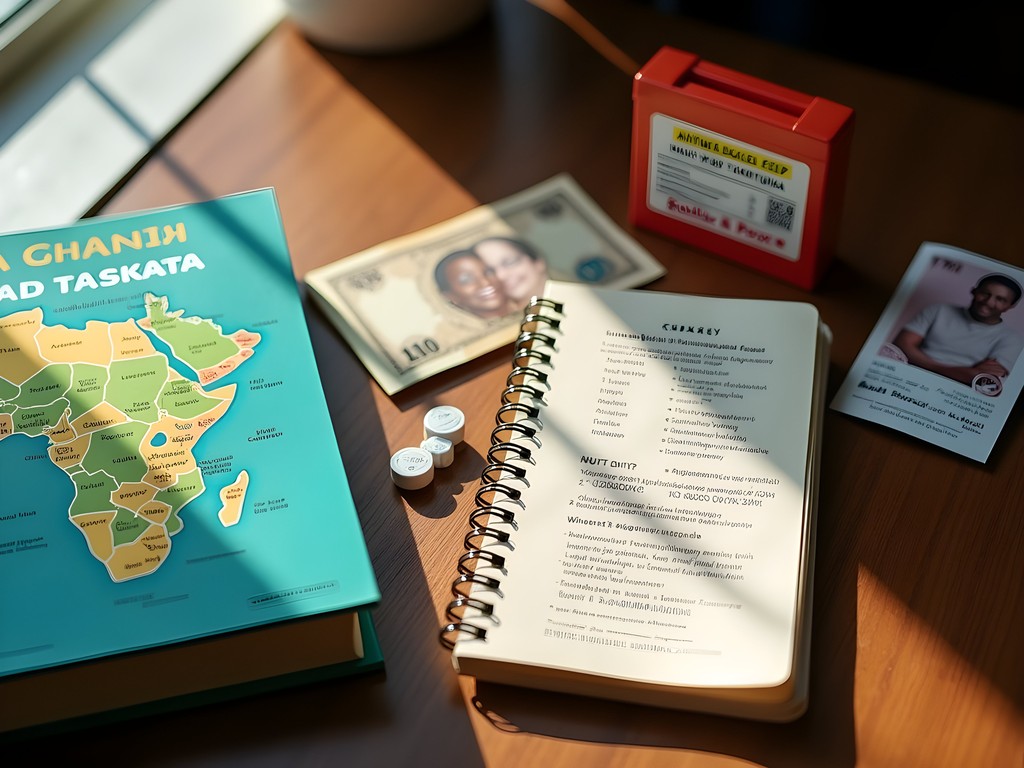
💡 Pro Tips
- Start malaria prophylaxis well before departure and continue after returning
- Download maps, translation apps, and essential information for offline use
- Scan all important documents and email them to yourself for emergency access
Navigating Kejetia Market: A Botanical Explorer's Paradise
Kejetia Market deserves its reputation as West Africa's commercial epicenter—a labyrinthine world where 11,000 stalls create neighborhoods unto themselves. As someone who typically spends hours examining alpine lichens in peaceful solitude, the market's sensory bombardment initially overwhelmed me. Yet within this chaos, I discovered a botanical wonderland hiding in plain sight.
The medicinal herb section became my sanctuary. Vendors displayed roots, barks, leaves, and powders with uses spanning generations of traditional knowledge. My botanical background earned me patient explanations from herbalists who recognized a genuine interest beyond tourist curiosity. One elderly vendor spent an afternoon showing me how shea butter is traditionally processed—a technique unchanged for centuries despite the product now appearing in luxury cosmetics worldwide.
Navigating the market requires strategic planning. I visited first with a local guide (worth every cedi) to understand the layout before venturing solo on subsequent visits. Morning hours (8-10 AM) offer slightly fewer crowds and more temperate conditions. I always carried a crossbody anti-theft bag worn across my chest rather than on my hip—this deterred opportunistic theft while keeping essentials accessible.
The food section presented both delight and caution. I discovered mangoes with flavor profiles I'd never encountered in Australia, alongside unfamiliar tubers and greens that expanded my botanical knowledge. When sampling street food, I followed locals to busy stalls with high turnover and avoided anything that had been sitting exposed for long periods—a practice that kept my digestive system mercifully stable throughout the trip.
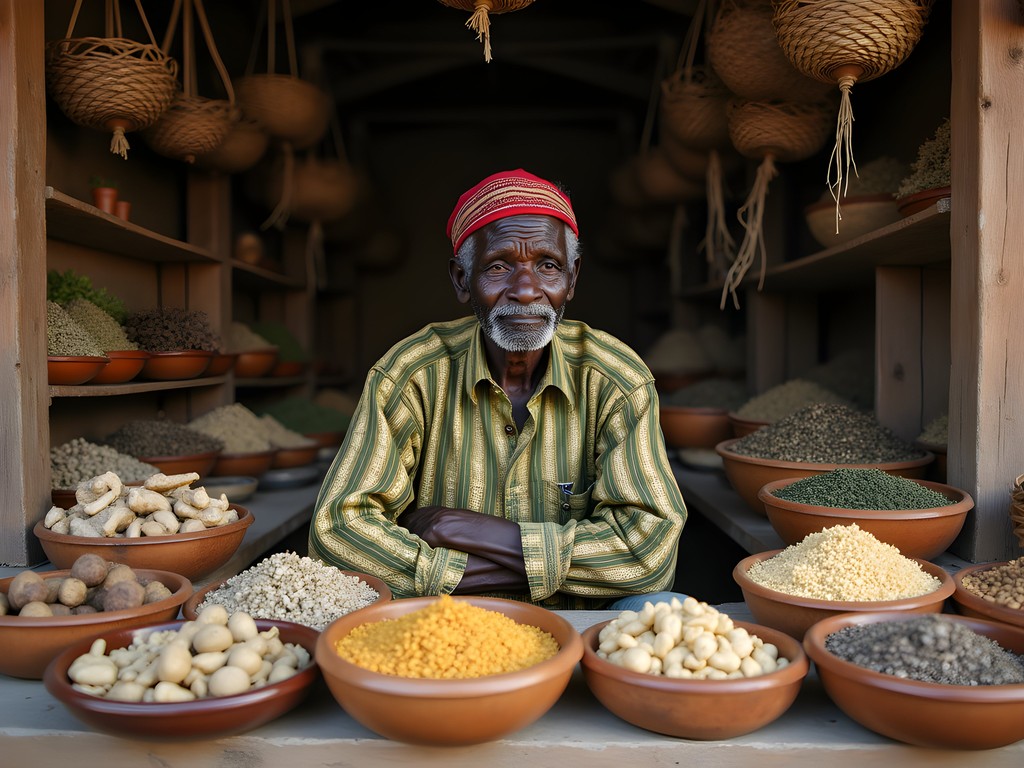
💡 Pro Tips
- Visit with a guide first to understand the market's complex layout
- Carry small denominations of cedis in different pockets to avoid displaying large amounts of cash
- Take periodic breaks in the less crowded fabric section to reorient yourself
Ashanti Cultural Heritage: Beyond Surface Encounters
The Manhyia Palace Museum stands as my strongest recommendation for solo travelers seeking to understand Kumasi's cultural significance. Unlike many cultural museums that offer sanitized versions of history, this institution presents Ashanti heritage with nuance and dignity. The palace grounds themselves offer welcome respite from urban intensity, with manicured gardens featuring native species I spent hours identifying.
Timing your visit to coincide with the Akwasidae Festival (occurring every sixth Sunday) transforms understanding into experience. During my stay, I was fortunate to witness this ceremony where the Asantehene (king) holds court in full regalia. The procession of chiefs, the rhythmic drumming, and the intricate protocols revealed governance systems predating colonial contact. As a solo traveler, I found hiring a knowledgeable local guide essential for context—the subtle meanings behind ceremonial movements would have been lost on me otherwise.
The National Cultural Centre provided another immersive experience, offering workshops rather than mere demonstrations. I spent an afternoon learning kente weaving basics, my customer service background appreciating the patience shown by master craftspeople teaching clumsy foreigners. The centre's botanical gardens feature medicinal plants with detailed explanations of traditional uses—a perfect intersection of my interests.
For photography enthusiasts, a quality camera with zoom lens proves invaluable for capturing ceremonial details without being intrusive. I found my camera opened conversations with local photography students eager to discuss technique and composition, creating unexpected connections across cultural boundaries.
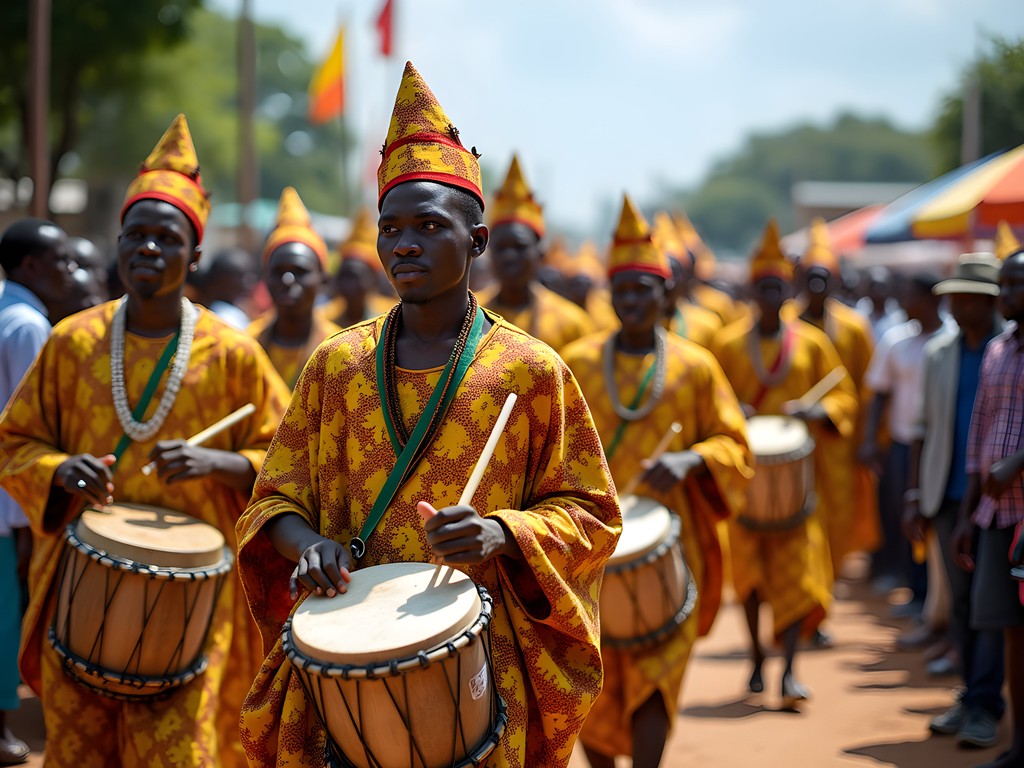
💡 Pro Tips
- Dress modestly and respectfully when visiting cultural sites—covered shoulders and knees at minimum
- Ask permission before photographing individuals, especially during ceremonies
- Learn about the symbolism of kente patterns before purchasing—each design carries specific meaning
Botanical Treasures: Kumasi's Green Sanctuaries
For a botanical enthusiast accustomed to temperate ecosystems, Kumasi's tropical flora presented a thrilling learning curve. The KNUST Botanical Garden became my frequent refuge—a 12.5-hectare living laboratory housing over 100 species. As someone who regularly disappears into Tasmania's wilderness for days, I found these gardens offered similar solace despite being within city limits.
The garden's collection of medicinal plants particularly fascinated me, bridging my interest in ethnobotany with practical applications. The Cinchona trees, source of anti-malarial quinine, stood as living reminders of botanical science's global impact. University students often conduct research here, and I found them eager to discuss their projects when approached respectfully.
Beyond formal gardens, Kumasi's peri-urban forests offered adventures requiring more preparation. The sacred groves—forest fragments preserved through traditional religious practices—represent biodiversity islands amid development. Accessing these requires cultural sensitivity and local guidance. I arranged visits through my guesthouse owner, who connected me with community members authorized to escort visitors.
For these excursions, my portable water filter proved essential, allowing me to refill water bottles from various sources without risk. The humid conditions meant I was constantly hydrating, and carrying sufficient water became impractical during longer explorations.
Documenting discoveries presented challenges in high humidity. My field notebook developed mold within days until I switched to waterproof paper. Photographing specimens in dappled forest light required patience and technical adjustments. The botanical complexity humbled me—after decades identifying plants across four continents, I found myself a novice again, a refreshingly vulnerable position for mid-life learning.

💡 Pro Tips
- Visit KNUST Botanical Garden early morning for wildlife spotting opportunities
- Carry silica gel packets to protect camera equipment from humidity damage
- Wear closed shoes even in gardens—fire ants and other biting insects are common
Accommodation Strategies: Safety Without Isolation
Selecting accommodation in Kumasi requires balancing safety, cultural immersion, and practical comfort. After extensive research, I opted against international chain hotels in favor of locally-owned guesthouses in the Nhyiaeso and Ahodwo neighborhoods. These areas offer relative tranquility while remaining connected to authentic city life.
I spent my first week at Four Villages Inn, a family-run establishment where the proprietors' decades of experience hosting international guests created an environment both secure and socially engaging. The communal breakfast table facilitated connections with other travelers and visiting academics—I gained invaluable insights from a German ethnobotanist studying traditional dye plants who became my exploration companion for several days.
For my second week, I shifted to Noda Hotel, positioning me closer to the KNUST campus and botanical gardens. While slightly more commercial, their security protocols impressed me—24-hour desk staffing, secure parking, and thorough guest registration. The rooftop restaurant provided a peaceful vantage point for evening reflection while writing my field notes.
Both establishments offered crucial local knowledge—from negotiating fair taxi prices to which market vendors sold authentic crafts rather than mass-produced imports. These recommendations proved more valuable than any guidebook information.
Despite reliable Wi-Fi at both locations, I maintained digital security with a travel VPN for banking and communication. Power outages occurred regularly, making a headlamp essential for navigating unfamiliar surroundings after dark.
While Kumasi offers various accommodation styles, I found mid-range locally-owned establishments struck the ideal balance—providing necessary security without isolating me from the community I traveled to experience. The genuine hospitality I encountered reminded me that meaningful connections often happen in these intermediate spaces between luxury isolation and backpacker basics.
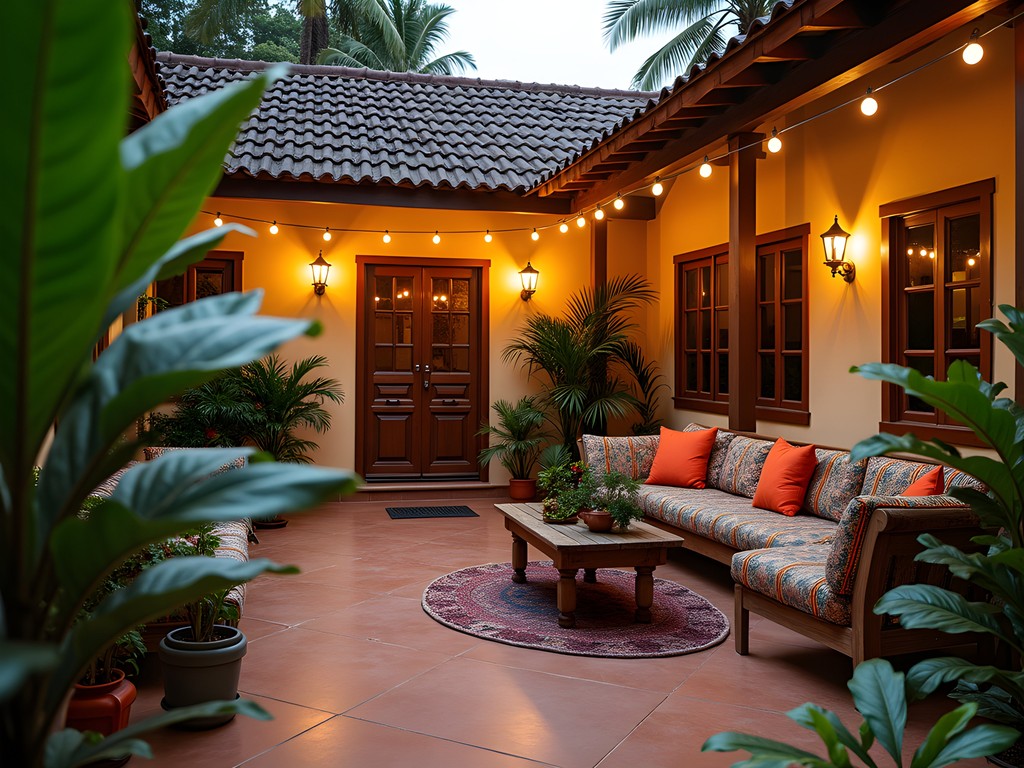
💡 Pro Tips
- Request rooms away from the street to minimize noise disruption
- Exchange contact information with hotel staff for emergencies
- Establish relationships with specific taxi drivers through your accommodation for reliable transport
Safety Strategies for Solo Navigation
Solo travel in Kumasi demands a balanced approach—maintaining awareness without succumbing to paranoia. Throughout my two weeks, I encountered overwhelming hospitality alongside occasional attempts at overcharging or misdirection. Developing effective safety strategies became an evolving practice rather than a fixed rulebook.
Transportation presented my first safety challenge. While Kumasi has ride-sharing apps, network connectivity issues made traditional taxis more reliable. I quickly established relationships with specific drivers recommended by my accommodation, saving their contact information for direct booking. This approach provided consistency and eliminated roadside negotiations that can make solo travelers vulnerable.
For daytime exploration, I found walking appropriate in specific neighborhoods but always with purpose and direction. Looking confidently lost rather than anxiously lost made a noticeable difference in how I was approached. When consulting maps, I stepped into shops rather than standing exposed on streets—a habit developed during years of solo hiking that transfers surprisingly well to urban environments.
My money belt became essential for carrying larger sums, while daily spending money went into easily accessible pockets. I maintained a decoy wallet with expired cards and minimal cash for situations where displaying a wallet seemed prudent. This system never faced a serious test, but provided psychological security that enhanced my confidence.
After dark, I modified my approach significantly. Taxis became non-negotiable, even for short distances. I declined evening invitations from recent acquaintances, instead building relationships through repeated daytime interactions before considering night outings. This measured approach didn't diminish authentic connections but established them at a pace allowing proper assessment.
Perhaps most importantly, I recognized when fatigue compromised my awareness. On days when sensory overload accumulated, I retreated to my accommodation earlier rather than pushing through—acknowledging that in solo travel, there's no partner to compensate for diminished alertness.
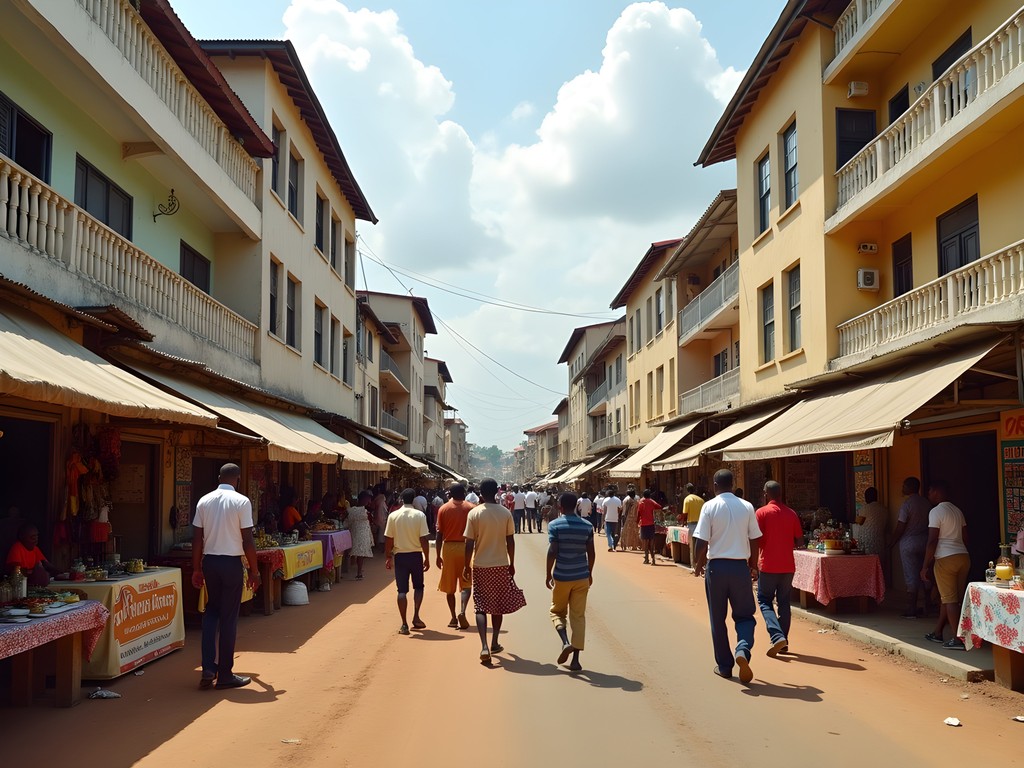
💡 Pro Tips
- Trust your instincts—if a situation feels uncomfortable, extract yourself politely but firmly
- Carry a charged power bank at all times—a dead phone eliminates communication options
- Learn the local emergency number (191 in Ghana) and program it into your phone
Final Thoughts
Kumasi transformed my understanding of solo travel in ways Tasmania or New Zealand never could. The city demanded more from me—greater cultural flexibility, heightened awareness, and deeper reflection on my presence as a foreign visitor. Yet it gave infinitely more in return through botanical discoveries, cultural insights, and human connections that transcended tourist transactions. For the experienced solo traveler willing to embrace temporary discomfort and approach Ghana's cultural heart with humility, Kumasi offers profound rewards impossible to quantify in Instagram posts or souvenir collections. As I sorted my pressed plant specimens and journal entries on the long flight back to Brisbane, I realized Kumasi hadn't just been another destination to catalog—it had fundamentally recalibrated my approach to solo exploration. If you're considering this journey, prepare thoroughly, proceed mindfully, and remain open to the unexpected lessons waiting in this extraordinary city.
✨ Key Takeaways
- Kumasi rewards thorough preparation—cultural research and practical safety measures are equally important
- Local connections through guesthouses provide both security and authentic experiences beyond tourist circuits
- The city's botanical treasures offer unique insights for nature enthusiasts willing to venture beyond conventional tourist sites
📋 Practical Information
Best Time to Visit
October-April (dry season)
Budget Estimate
$50-75 USD daily (mid-range budget)
Recommended Duration
Minimum 10-14 days
Difficulty Level
Challenging

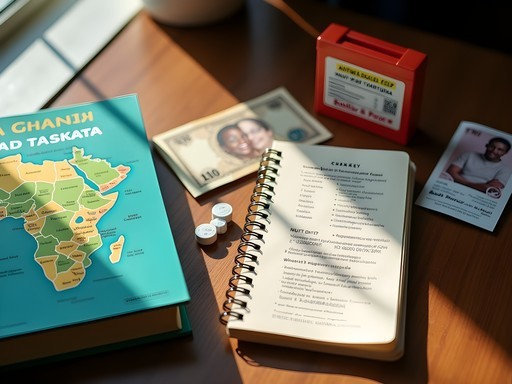
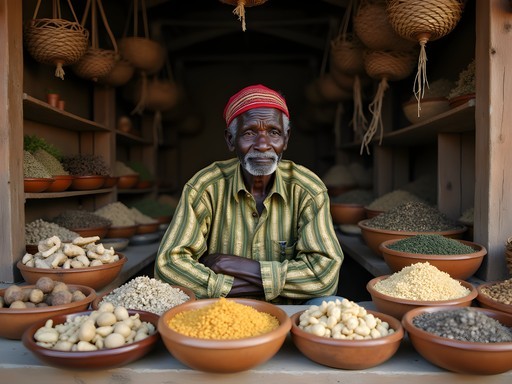
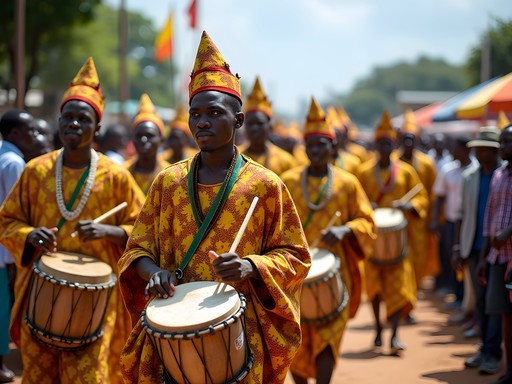


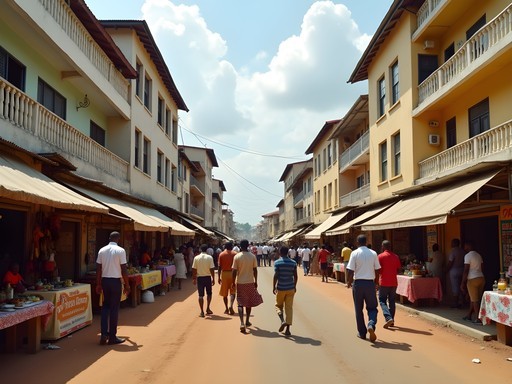


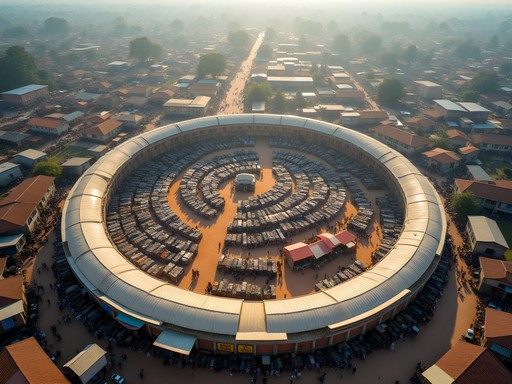
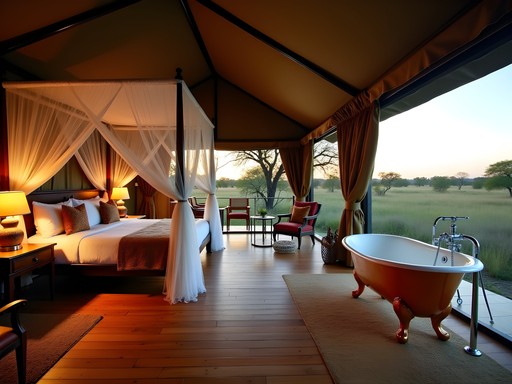
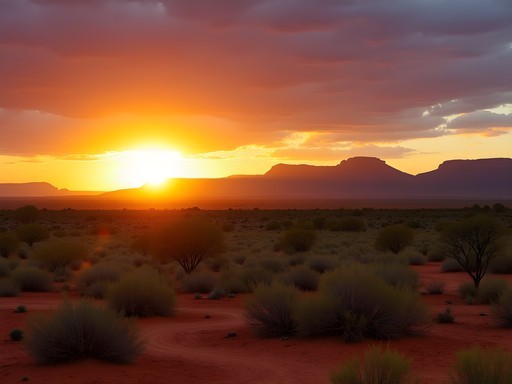
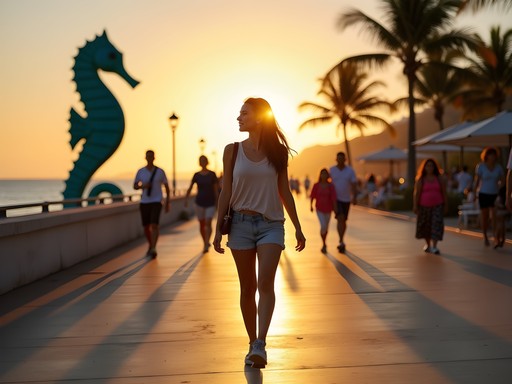
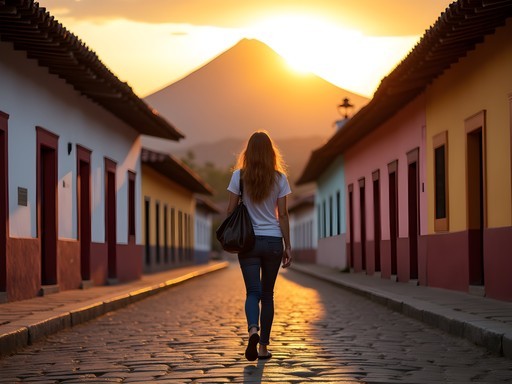
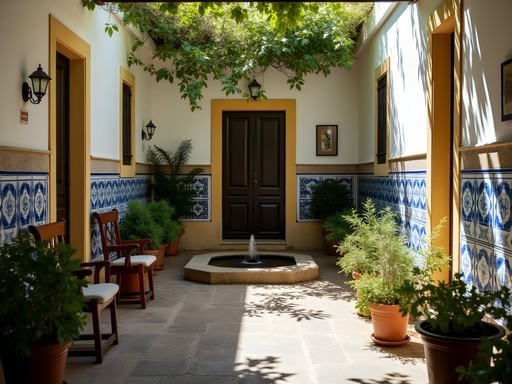
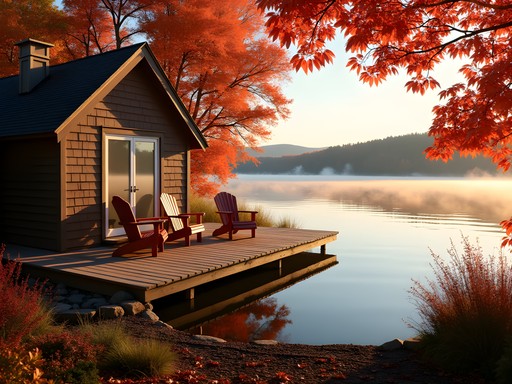
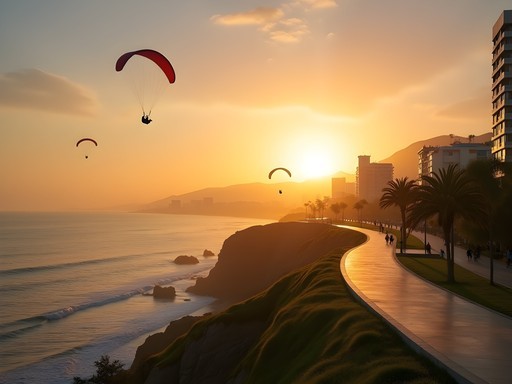
Comments
GlobeTrekker99
Those market photos are incredible! The colors are so vibrant!
adventureblogger
Did you feel safe walking around alone? I'm a bit nervous about traveling solo in West Africa for the first time
globequeen
Going there next month!! Any tips on where to stay? Looking for somewhere safe but not too expensive
wildmood
Not OP but I stayed near KNUST campus area, felt really safe and lots of good food options
globequeen
Thanks!! Will check that out 🙏
Kimberly Murphy
Donald, this really resonates! I spent 10 days in Kumasi last year and you've captured the intensity perfectly. Kejetia Market is absolutely mental but in the best way possible. One tip I'd add for solo travelers - I hired a local guide through my guesthouse for my first market visit and it made ALL the difference. She introduced me to vendors who became friends, showed me the herbal medicine section (incredible!), and I felt so much safer navigating those narrow passages. The botanical gardens near Manhyia Palace are stunning too - did you get to explore those? Would love to hear more about the green spaces you discovered!
adventureblogger
How much did the guide cost? Going in September and this sounds like a good idea
Kimberly Murphy
I paid about 50 cedis for half a day which was super reasonable. Totally worth it for the first visit!
wildmood
This is so cool! Adding Kumasi to my bucket list now 🇬🇭
TravelBug42
Going to Kumasi next month! How's the wifi situation for digital nomads? Need to stay connected for work.
Donald Payne
It's spotty in some areas but improving! Most hotels and cafes in central Kumasi have decent connections. I'd recommend getting a local SIM card as backup - MTN worked best for me.
Hannah Woods
Donald, your insights on cultural flexibility really hit home. As someone who's backpacked through 30+ countries, I still found Kumasi challenging in the most rewarding ways. The Ashanti cultural heritage section of your post is spot on - those surface-level tourist experiences miss the depth of what's happening. I spent three weeks there last year and found hiring a local guide for just the first two days helped me navigate the cultural nuances tremendously. For anyone heading there, I'd recommend learning at least basic Twi phrases and bringing a portable water filter as the tap water situation can be unpredictable. The botanical aspects you highlighted are often overlooked by other travel writers - that medicinal plant section in KNUST gardens was fascinating!
freeperson
Hannah - did you feel safe as a solo female traveler there? Thinking of going but a bit nervous about it.
Hannah Woods
Absolutely! Just use common sense - don't flash valuables, be aware of your surroundings, and trust your instincts. I actually felt safer in Kumasi than in many European cities. The locals were incredibly protective of tourists in my experience.
freeperson
Thanks! That's reassuring to hear. Definitely adding it to my list now!
freeperson
This brought back so many memories! I visited Kumasi last year and the Kejetia Market totally overwhelmed me at first. Took me a solid hour to get my bearings! Did you try any of the street food near the market? Those plantain chips with the spicy sauce were my addiction for days. Also found the locals super helpful when I got lost (which happened more than I'd like to admit lol).
Donald Payne
Glad it resonated with you! And yes, those plantain chips are dangerously addictive. I think I had them almost every day. Did you make it to any of the botanical gardens I mentioned?
freeperson
I only made it to the KNUST botanical garden and it was such a peaceful escape from the city chaos! Wish I'd seen more of the green spaces you mentioned.
dreamnomad
Just got back from Ghana last week! Your section on cultural flexibility resonated with me. I found myself constantly adjusting my expectations in Kumasi - in the best possible way. The botanical gardens were a highlight for me too. Did anyone else try the palm wine from vendors near the cultural center? That was quite the experience!
travelgal
Yes! Palm wine was an adventure for my taste buds! Did you try it fresh or fermented?
dreamnomad
Both actually! Fresh in the morning was sweet and refreshing, but the fermented afternoon batch had quite the kick! 😂
Haley Hamilton
Donald, your post brought back so many memories of my time in Kumasi! I remember standing in Kejetia Market feeling completely overwhelmed until an elderly fabric seller took me under her wing. She showed me her favorite food stalls and introduced me to kelewele (spiced plantains) that changed my life. The botanical aspects you highlighted were my sanctuary too - especially the peace I found at Bobiri Butterfly Sanctuary after the sensory overload of the city. For anyone heading there, I found that learning just a few Twi phrases opened so many doors with locals. 'Meda wo ase' (thank you) and 'Ɛte sɛn?' (how are you?) got me warm smiles everywhere. Kumasi truly demands more from travelers, but gives back tenfold in authentic experiences.
Venture X
Premium card with 2X miles, $300 travel credit, Priority Pass